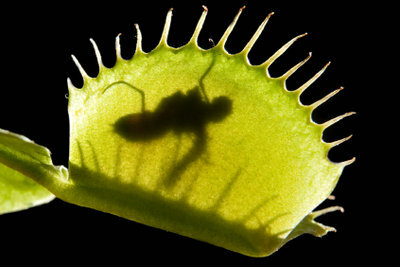Soil for carnivorous plants
You cannot use ordinary potting soil for carnivorous plants, as these plants cannot tolerate it. So take special carnivorous soil or mix your own substrate.

The needs of carnivorous plants
- Carnivorous Plants are also called carnivores. Just like other plants, they take in the sunlight they need for photosynthesis through their leaves, and they also eat small ones insects. However, these insects are only an additional food, the carnivorous plants are not necessarily dependent on animal food.
- Because their leaves are designed so that they can use them to lure insects into the trap, the leaves are of carnivorous plants are not quite as optimally designed for photosynthesis as in others Plants. Carnivores therefore usually grow in the wild where the conditions are too bad for other plants, because in favorable locations they are usually displaced by other plants. Carnivores are therefore used to getting along with very few nutrients.
- There are many different types of carnivore. Therefore, when caring for your plants, you should always first find out the requirements of the respective species. Basically, however, most carnivorous plants need a lot of light and even more water, because they often come from bog areas. So pour plenty of water and leave the excess water in the planter or saucer. If possible, do not use tap water, as the lime it contains is harmful to the plants.
The carnivores need this earth
- Most of all, carnivorous plants need acidic soil with a pH of around 3 to 4. Carnivore soil, which you can buy ready-made in stores, has this value.
- If you want to mix your substrate yourself, you can use raised bog or white peat, which is acidic and contains few nutrients. In addition, peat has the advantage that it can store water for a very long time so that your plants do not dry out.
- To keep the substrate from becoming too dense, add some perlite or quartz sand. This will make the soil more permeable so that the roots of your plants will be well ventilated.
- Carnivores should not be fertilized because these plants cannot tolerate it. For this reason, if you want to use a substrate other than carnivore soil or peat, you should make absolutely sure that it does not contain any fertilizers.
Which soil to use for hydrangeas?
Hydrangeas are one of the most attractive plants on balconies, patios and garden beds. …
How helpful do you find this article?

